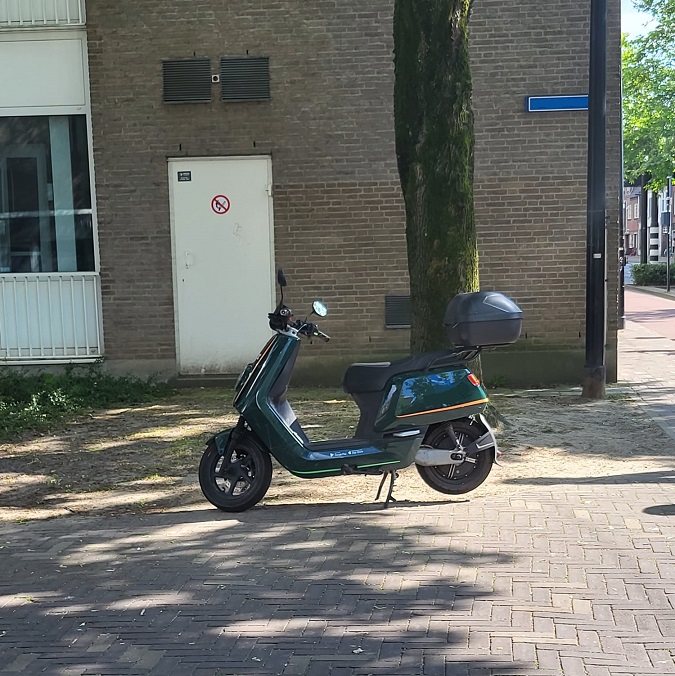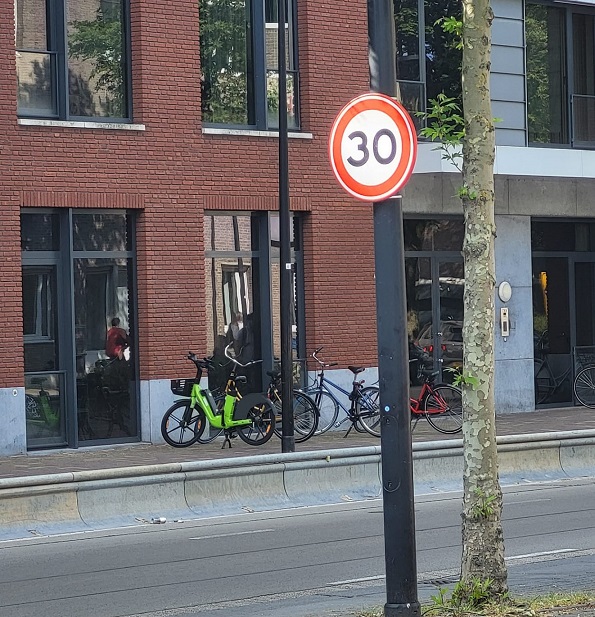In this article we discuss position paper KG:040:2022:9 of January 31, 2023. In this position paper the Knowledge Group on international taxation, corporate income tax & the taxation of profits of the Dutch tax authorities answers the question whether in its view parking locations in combination with the rental of means of transport by a foreign company, constitute a permanent establishment in the Netherlands.

The underlying case
A foreign company has been assigned over 20 locations in and around a Dutch city where it is allowed to store means of transport that can be taken there by users, against a rental fee. After use these means of transport can be returned to one of these locations.
Question
Does the foreign company have a permanent establishment in the Netherlands?
Answer
Yes the foreign company does have (a) permanent establishment(s) in the Netherlands.
From the consideration of the tax authorities
With respect to the tax liability of non-resident taxpayers the term permanent establishment as laid down in Article 3, Paragraph 4 of the Dutch Corporate Income Tax (DCIT) Act the foreign tax is aligned with the provision in the relevant tax convention. In the underlying case, the foreign company is a resident of a convention with a permanent establishment provision in accordance with Article 5 of the OECD Model Tax Convention.
A permanent establishment exists if the foreign company carries out its business in the Netherlands, through a place of business, at a fixed location and for a sufficiently long period.
These conditions have been met by making the means of transport available against a rental fee at the various locations. After all, the place of business does not have to be structured for the company. In this respect Paragraph 10 of the OECD Commentary to Article 5 of the OECD Model Tax Convention states the following:
“(…)A place of business may also exist where no premises are available or required for carrying on the business of the enterprise and it simply has a certain amount of space at its disposal (…).”
With respect to the requirement that the business activity must be performed at a fixed location, the following can be noted. There is no support in the OECD commentary for the position that an entire city can be seen as one fixed location.
In this respect Paragraph 25 of the OECD Commentary 2017 to Article 5 of the OECD Model Tax Convention states the following:
“Conversely, an area where activities are carried on as part of a single project which constitutes a coherent commercial whole may lack the necessary geographic coherence to be considered as a single place of business. (…)“
The different locations then form just as many permanent establishments. The results of these permanent establishment are combined in the Dutch corporate income tax return filed by the non-resident taxpayer. The taxpayer only files one return per year.
Remarks ITP
In the underlying case 20 specific locations were assigned where the rental company (or perhaps even better said the customers of the rental company) could pick-up a means of transport. When the customer finishes use of the means of transport it can return that means of transport back to the same location where it picked-up that means of transport or to one of the other assigned locations.
In its considerations the Dutch tax authorities concludes that each specific location that is assigned to a foreign rental company constitutes a permanent establishment.
In my hometown of Tilburg, The Netherlands no special storage locations have been assigned to rental companies. Their customers can pick-up a car, e-bike or e-moped through the whole city. After they finish the use of the car, e-bike or e-moped the customer can park it wherever the user wants within the city limits. Subsequently the next customer can see the location where the nearest car, e-bike or e-moped of the rental company is parked in an app and pick it up from there. In their considerations the Dutch tax authorities also conclude that for such situation in the OECD commentary no support can be found for the position that an entire city (the city of Tilburg in this case) can be seen as one fixed location and thus as I understand it in the view of the Dutch tax authorities the city of Tilburg does therefore not constitute a permanent establishment for the rental company/rental companies. Considering the fact that most of the users of the services rendered by the rental companies use an app to find and hire a means of transport as well as to pay to pay for the services rendered this is a very interesting conclusion of the Dutch tax authorities.

The full Dutch text of the position paper can be found here.
Other position papers of the Knowledge Group on international taxation, corporate income tax & the taxation of profits of which we already made an English summary can be found here.
Copyright – internationaltaxplaza.info
Follow International Tax Plaza on Twitter (@IntTaxPlaza)




